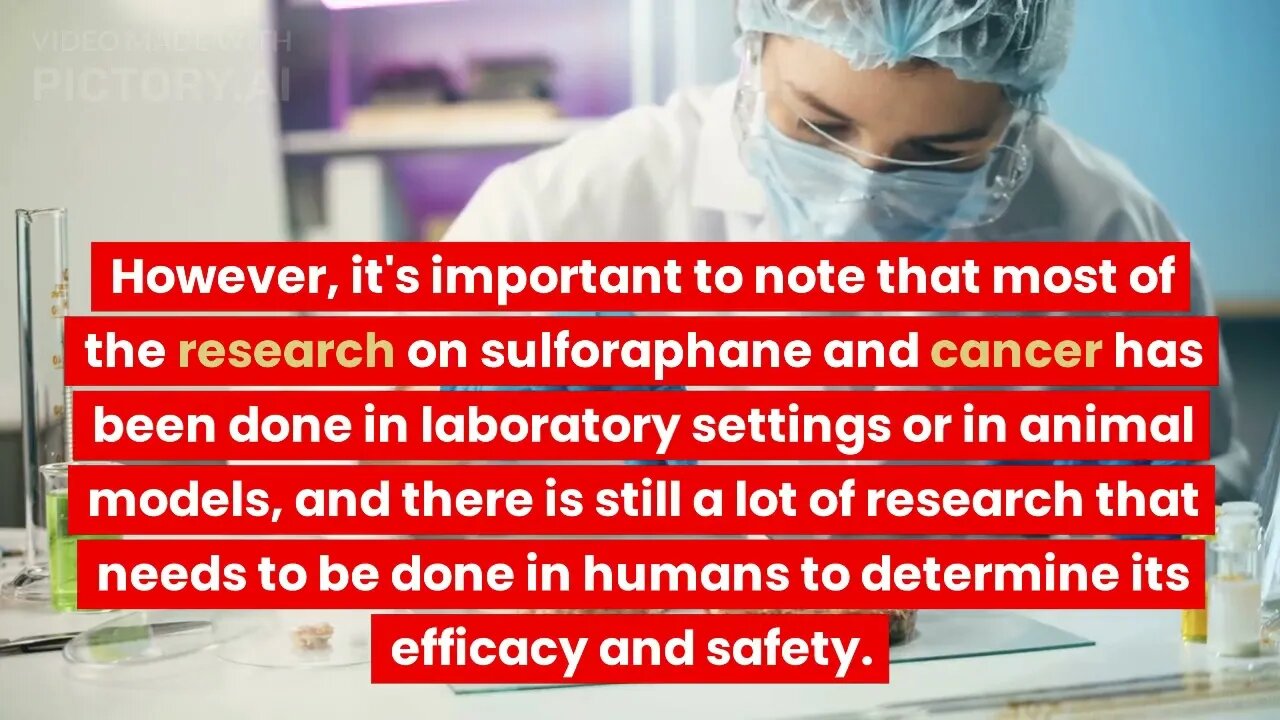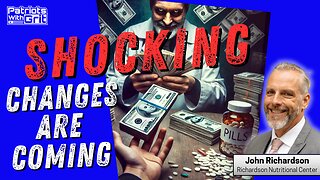Premium Only Content

Broccoli, Sulforaphane & Cancer - What does the science say
Broccoli contains a compound called sulforaphane, which has been studied for its potential anti-cancer effects. Sulforaphane is formed when broccoli is chopped or chewed, and it has been found to have a variety of biological activities that could help protect against cancer.
Studies have shown that sulforaphane can inhibit the growth of cancer cells in laboratory experiments, and it has been shown to have anti-inflammatory and antioxidant effects. Some studies have also found that sulforaphane can induce cell death (apoptosis) in cancer cells, and may help prevent the formation of new blood vessels that tumors need to grow (angiogenesis).
However, it's important to note that most of the research on sulforaphane and cancer has been done in laboratory settings or in animal models, and there is still a lot of research that needs to be done in humans to determine its efficacy and safety. Additionally, the amount of sulforaphane in broccoli can vary widely depending on how it is cooked and prepared, and it's unclear whether the levels of sulforaphane in the diet are high enough to have a significant impact on cancer risk.
Overall, while the research on sulforaphane and cancer is promising, more studies are needed to determine its potential effectiveness in humans. In the meantime, incorporating broccoli and other cruciferous vegetables into a healthy diet is still a good idea, as they are rich in vitamins, minerals, and fiber, and may have other health benefits as well.
-
 LIVE
LIVE
Razeo
1 hour agoEp 31: Finishing March Ridge & onto Muldraugh tonight
291 watching -
 LIVE
LIVE
Adam Does Movies
31 minutes agoBatman II Update + Flash Director Fails + Movie Bombs! - LIVE!
47 watching -
 LIVE
LIVE
We Like Shooting
14 hours agoWe Like Shooting 593 (Gun Podcast)
103 watching -
 LIVE
LIVE
Flyover Conservatives
20 hours agoJack Hibbs Blasts California Leaders: Must-Watch!; Can Trump Fix the Mess? How Long will it Take? - Dr. Kirk Elliott | FOC Show
656 watching -
 LIVE
LIVE
DillyDillerson
1 hour agoTalking to the moon!! Just some live views of the FULL MOON!!
181 watching -
 1:29:29
1:29:29
Glenn Greenwald
5 hours agoWith Biden Out, U.S. Finally Admits Harms of His Israel / Gaza Policy; Biden Pays Homage To George W. Bush; Insane Women’s Tennis Scandal: An “Abusive” Coach | SYSTEM UPDATE #388
35.8K34 -
 LIVE
LIVE
Danny Polishchuk
7 hours agoWho's To Blame For LA Fires, Jewish Tunnels Update + Forbidden Anthropology
329 watching -
 1:08:10
1:08:10
Donald Trump Jr.
7 hours agoOne Week Until Inauguration, Live with Rep Anna Paulina Luna & Sen Tommy Tuberville
106K112 -
 1:00:13
1:00:13
The StoneZONE with Roger Stone
4 hours agoLAWFARE! Are Trump's Legal Assaults Winding Down? w/ Impeachment Lawyer David Schoen | The StoneZONE
23.7K -
 1:01:43
1:01:43
Patriots With Grit
22 hours agoShocking Changes Are Coming, If You Can Believe It | John Richardson
8.22K1